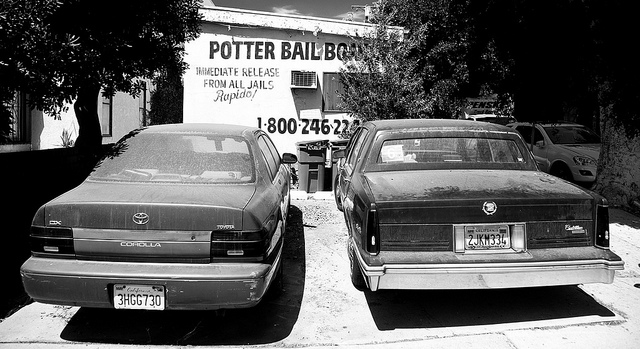When Opposing Counsel Tries to Bully You
Part of the fun of doing appeals and post-conviction work is hearing from colleagues with questions about things that arise in cases. Recently, I spoke with an attorney with an unusual situation. The lawyer was defense counsel on a serious child abuse matter. The prosecutor, when she supplied statutory discovery, told the lawyer that he was not allowed to show the discovery to the client, upon possible risk of prosecution. The prosecutor is obviously wrong, but this was a dangerous situation, at least from my perspective as a risk averse person.
Here’s what made it tricky. At first blush, my thought was to tell the lawyer to tell the prosecutor to go kick sand or simply to ignore the warning. The prosecutor was more wrong than a football bat. But there’s nothing more dangerous in a quasi law enforcement agent (these folks have badges) than a zealous belief combined with an unsound opinion. The prosecutor was either being a bully, actually believed that it is against the law to provide the client with discovery, or both. In either event, this person has the right to take pretty much anything to a grand jury, seek an indictment, and place the colleague’s career and life in jeopardy. The colleague would likely prevail in the end, but the journey would not be a fun one. So, I didn’t advise ignoring the prosecutor or giving the prosecutor a well-deserved middle finger. Here’s what I advised.
- Get the prosecutor to commit the threat to writing. I advised that the lawyer send an email to the prosecutor to confirm that the prosecutor actually held that position. Something along the lines of “Dear Eliot Ness. I’m just following up on our conversation about the Smith case. I want to see if it is still your position that you believe I am not allowed to share the discovery with Mr. Smith. Do you still believe that I cannot share it with my client? Do you still believe that I would break the law if I did so? In the event that I shared the discovery with my client, what would the State’s position about what should happen to me? I will assume that if I do not hear from you within 5 days, that you are holding course on what you told me, which is ‘_________.'” With any luck, the prosecutor will change course at this point and say so in writing. However, if the prosecutor maintains the same position, you have a statement in writing, which will be useful in point two.
- File a Motion. I advised that the lawyer then take the issue to the judge. The lawyer said what many lawyers say when I suggest filing a motion, which was “there’s a motion for this?” And I said, “yes, you can move for anything. Draft a motion entitled ‘Motion to Allow Defense Counsel to Provide Discovery to His Client.'” I suggested that the motion be constitutionalized, with a particular emphasis on the right to effective assistance of counsel under the Sixth Amendment and due process under the Fifth and Fourteenth Amendment. Remember the email that I advised the lawyer to get from the prosecutor? Attach it as Exhibit A. This email will prevent the DA from coming to court and saying, “I don’t know what Mr. Defense attorney is talking about. I never told him he couldn’t share discovery with his client.” The filing of the motion may force the DA to change course. If not, have a hearing.
- The Hearing. Hearings end one of two ways. You win or you lose. I told the lawyer that either is really good for his client. If the lawyer wins, further bullying from this DA might stop. The DA will likely be embarrassed. And the lawyer will come out of the hearing as the one with more credibility than his opposing counsel. If there are further discovery disputes, the defense attorney will likely be presumed right, and the DA will be operating under a cloud.
- If the Judge Rules with the DA, Oh What Fun! However, if the lawyer loses, then oh the fun that will be had as things unfold in the case. First, the lawyer will have planted reversible error in the record. Secondly, the lawyer will have a fun little tool to use at various stages as the case progresses. At the calendar call, if there’s some deadline to have decided whether to accept the State’s offer, the lawyer can say something like “Your honor, I understand that today is the deadline. However, I cannot advise my client whether to take the plea. Since he can’t view his discovery, he cannot assess whether this is a good offer or not.” If you get to trial, announce, “Judge, I cannot advise the client whether to testify. He is not allowed to see his discovery, and he cannot exercise this decision.” Even if the client takes a plea, the lawyer can say, “He feels hamstrung, judge. He’s taking this plea because he is afraid of facing a trial where he cannot know what is in his discovery.”
- Stop Subsequent Non-Written Communications with this DA. I advised this course for future cases. There are few DAs with whom I do not get along. However, for those, I limit person to person contact and conduct plea negotiations in writing. It actually makes life much more easy. I get what I need for the Court. And anything hinky can just get an exhibit sticker on it one day.
- A Kind Voice Turneth Away Wrath. So goes the Proverb. The louder, angrier, and less reasonable the DA is, the softer, happier, and more reasonable shall the defense attorney be. Don’t get in a spat with a DA in court. Efficiently and calmly make your record. Also, if the DA makes you mad, wait at least a day before deciding whether you will respond in kind. As Warren Buffett recently advised a young author, you can always tell them to go to Hell tomorrow. In other words, if you are going to take a harsh track, wait a day to see if you aren’t caught up in the emotion of the moment. You probably are.







